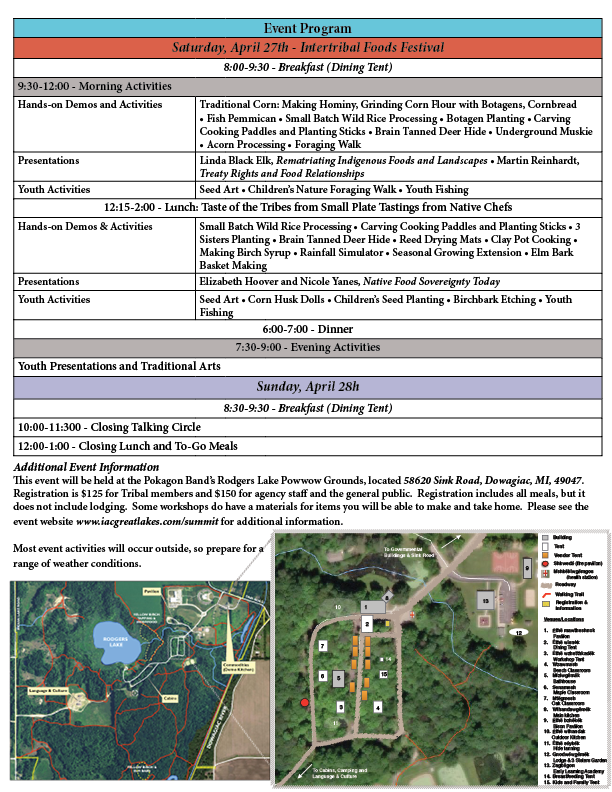








USDA is currently accepting applications for the Acer Access and Development Program for efforts to promote the domestic United States maple syrup industry. The maximum award is $500,000 with $4 million in total funding. Application deadline is May 10, 2019.
Here are the topics that will be included. Check back for additions and the full schedule in the next few days, and register by March 31st for the early registration rate.

Discounted registration is available for the Great Lakes Intertribal Food Summit through March 31st. We are also accepting scholarship applications through March 25th, but scholarships will not cover travel and are intended for those who would otherwise be unable to attend.
https://pokagonfoodsummit.eventbrite.com

#foodsummit
USDA’s Rural Development is currently accepting applications for its Rural Business Development Grant (RBDG) to assist with the development and expansion of small businesses in rural areas. Application deadline is March 29, 2019.
Great Lakes Intertribal Food Summit organizers are working with our co-host, the Native American Food Sovereignty Alliance (NAFSA), and their Mentorship Program in accepting culinary mentor and mentee applications , which offers an excellent opportunity to share and learn skills while making new connections. Limited travel funding may be available for selected applicants. Applications are due March 1st.
#foodsummit #mentorship
There is still time to register for the Tribal Food and Farming 101 Workshop that will be held at the College of Menominee Nation in Keshena, Wisconsin on February 15-16. There is no cost to register for Tribal community members (any Tribe) and staff.
Please note this event is on at the College of Menominee Nation’s Cultural Learning Center in Keshena Wisconsin (your phone app may show a College of Menominee Nation in Green Bay, which is about an hour away; don’t go to that location). Here’s more detailed maps.

